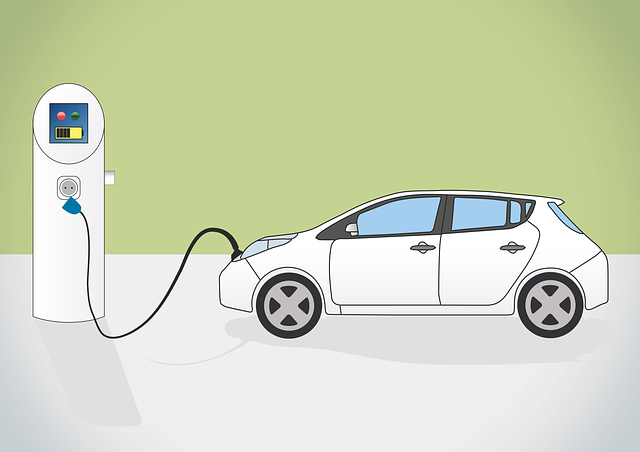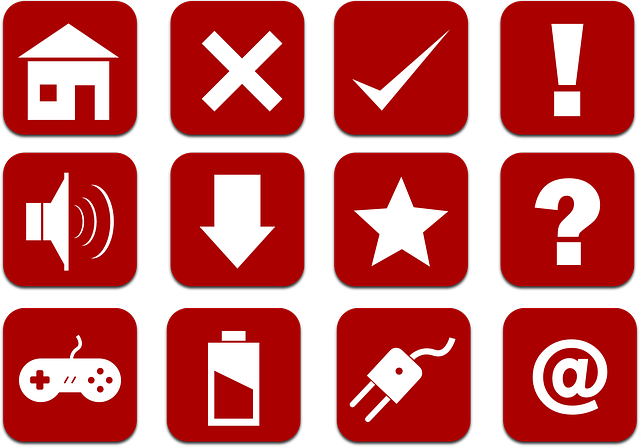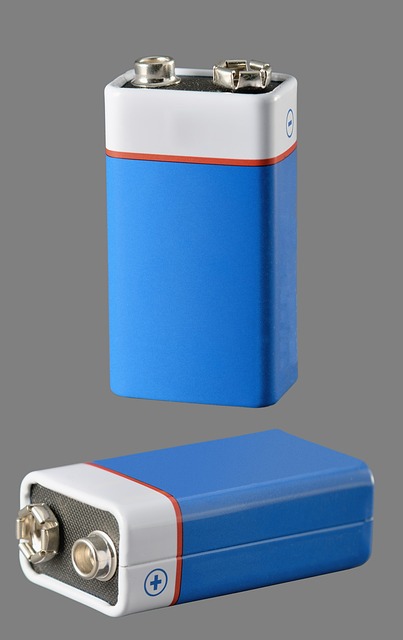Properly disposing of batteries is crucial for environmental health and human safety. Alkaline batteries, which are commonly used and contain minimal hazardous materials, can be safely disposed of in the trash once they've been fully used. In contrast, rechargeable batteries like lithium-ion, nickel-cadmium, and nickel-metal hydride, due to their environmentally harmful chemicals, should be recycled at designated collection points or specialized e-waste recycling centers. These centers extract valuable materials from used batteries and ensure safe disposal. Manufacturers are actively promoting sustainable battery replacement practices through recycling programs, making it easier for consumers to responsibly dispose of old batteries and embrace eco-friendly habits. It's essential to replace batteries with compatible, high-quality ones from reputable sources to maintain device functionality and safety. By following these guidelines and utilizing manufacturer-led recycling initiatives, individuals can significantly reduce environmental pollution and support sustainable practices in battery management, contributing to a greener future. Always remember to fully drain lithium-ion batteries before disposal and stay informed about local waste management protocols for the most effective eco-conscious disposal methods available.
3 Eco-Friendly Tips for Battery Disposal: A Guide to Sustainable Power Solutions
In our increasingly digital world, batteries power a myriad of devices, making their responsible disposal critical for environmental health. This article delves into the eco-conscious approach to battery replacement and disposal. We’ll explore the importance of proper battery management, detail how to identify different types of batteries for safe disposal, guide you in locating nearby recycling facilities, and highlight manufacturers’ roles in fostering sustainable practices. By adopting these three practical tips, you can actively contribute to a greener planet. Learn how to replace your batteries responsibly and make a difference today.
- Understanding the Importance of Proper Battery Disposal
- Tip One: Identifying the Types of Batteries and Safe Disposal Methods
- Tip Two: Locating Local Recycling Centers for Eco-Friendly Battery Replacement
- Tip Three: The Role of Manufacturers in Sustainable Battery Replacement Programs
- Taking Action: Steps to Safely Replace and Dispose of Your Batteries
Understanding the Importance of Proper Battery Disposal

The improper disposal of batteries can have detrimental effects on both the environment and human health, making it imperative to understand the correct procedures for their disposal. Traditional alkaline batteries contain corrosive materials like steel and zinc, while rechargeable batteries often contain hazardous substances such as lithium, cadmium, mercury, or lead. These elements can leak toxic substances into the soil and water sources when disposed of improperly, causing pollution and posing risks to wildlife and communities. Replacing batteries responsibly not only mitigates these environmental risks but also ensures that rechargeable batteries maintain their longevity and efficiency. Consumers have a pivotal role in this process; by choosing the right batteries for their devices and ensuring they are recycled or disposed of properly, they can significantly reduce the ecological footprint associated with battery use. Recycling centers and take-back programs are available for both single-use and rechargeable batteries, offering a sustainable solution to manage the growing demand for portable power. By understanding the importance of proper battery disposal and taking proactive steps to recycle or replace them correctly, individuals can contribute to a cleaner, greener environment.
Tip One: Identifying the Types of Batteries and Safe Disposal Methods

When it comes time to dispose of batteries, understanding the types and implementing safe disposal methods is paramount for environmental protection. Most household batteries are either alkaline, lithium-ion, or nickel-metal hydride varieties. Alkaline batteries, commonly used in everyday household items, can be safely thrown into the trash due to their low hazardous material content. However, rechargeable batteries like lithium-ion and nickel-metal hydride require more attention during disposal because they contain chemicals that can harm the environment if not managed correctly. These should never be disposed of in regular trash; instead, they should be brought to designated collection points or recycling centers. Many electronics retailers and local government facilities offer these services. Proper battery identification is the first step toward eco-friendly disposal; it ensures that each type ends up in the correct waste stream, thus preventing contamination of soil and water supplies. By replacing batteries responsibly, we mitigate the environmental impact of their power sources, contributing to a greener planet.
Replacing batteries regularly with eco-conscious practices is a simple yet effective way to lessen your carbon footprint. When a battery loses its charge, it’s crucial to replace it with a new one that’s compatible with the device. For instance, if your smoke detector or remote control requires a lithium battery, purchasing a replacement that fits and has a good reputation for performance and longevity is essential. Disposing of batteries responsibly not only protects the environment but also ensures the continued functionality of devices dependent on their power. Always check the label or manual for the type of battery your device uses and seek out reputable manufacturers when purchasing replacements to guarantee both safety and efficiency. By adhering to these eco-friendly disposal practices, you contribute to a sustainable future and support the responsible lifecycle management of these small yet impactful power sources.
Tip Two: Locating Local Recycling Centers for Eco-Friendly Battery Replacement

When the time comes to replace your battery, it’s crucial to handle the process with an eco-conscious mindset. One effective way to ensure that your old batteries do not contribute to environmental pollution is by locating local recycling centers equipped to handle battery disposal responsibly. Many communities have designated facilities for this purpose, where you can drop off your used batteries free of charge. These centers use specialized equipment to safely recover and repurpose the materials within batteries, such as metals like lithium, nickel, and cadmium. By taking a proactive step to find and utilize these resources, you contribute to the reduction of hazardous waste in landfills and support the sustainable lifecycle of battery technology. It’s a simple yet impactful action that each individual can take towards environmental preservation. To begin, you can search online for nearby recycling centers or contact your local waste management authority for guidance. Often, municipalities have information on where and how to recycle batteries effectively, making it easier than ever to dispose of your batteries in an eco-friendly manner. Always check with your specific locality as policies and facilities can vary, ensuring that your efforts align with the most sustainable practices available to you.
Tip Three: The Role of Manufacturers in Sustainable Battery Replacement Programs

When it comes time to replace a battery, manufacturers play a pivotal role in facilitating sustainable disposal practices through their replacement programs. These initiatives are designed to streamline the process of recycling old batteries and integrating new ones into various devices, from mobile phones to electric vehicles. By providing clear instructions and designated collection points for consumers, manufacturers take responsibility for the lifecycle of their products. This approach not only alleviates the environmental burden but also encourages users to participate in eco-friendly practices without undue inconvenience. Moreover, these programs often partner with recycling facilities that specialize in battery processing, ensuring that hazardous materials are safely recovered and reprocessed for use in new batteries, thus closing the loop on a circular economy. Consumers can rest assured knowing that their old batteries will be handled in an environmentally sound manner when they choose to replace their devices with those backed by such manufacturer-led sustainable programs.
Taking Action: Steps to Safely Replace and Dispose of Your Batteries

When the time comes to replace your batteries, it’s crucial to handle the old ones responsibly. Firstly, identify the type of battery you have—whether it’s alkaline, nickel-cadmium (NiCd), nickel-metal hydride (NiMH), lithium-ion (Li-ion), or another variety. Each type requires specific disposal methods due to their varying compositions and environmental impacts. Alkaline batteries, the most common household type, are generally non-hazardous and can be disposed of in the regular trash after ensuring they are discharged and have no remaining power. On the other hand, rechargeable batteries like NiCd and NiMH should never be thrown away with regular waste due to toxic materials they contain. These should be brought to designated recycling centers or participating retail stores that offer battery take-back programs. Lithium-ion batteries, commonly found in smartphones, laptops, and other electronics, pose additional risks due to their potential to overheat if damaged. Therefore, these must be carefully packaged and delivered to specialized e-waste recyclers who have the necessary equipment to process them safely.
To facilitate the safe disposal of batteries, many manufacturers now offer take-back schemes for their products containing batteries. Utilize these services when available, as they often provide a convenient way to recycle without the need for additional packaging or transportation. Regardless of the method you choose, always ensure that batteries are fully drained before disposal, as this reduces the risk of injury or environmental damage. Additionally, keep an eye on local waste management policies, as they can change over time and may offer new solutions for eco-friendly battery replacement and disposal. By taking these proactive steps, you contribute to a cleaner environment and set a positive example for others to follow in the responsible management of batteries.
Effective battery management and disposal are pivotal for environmental health. This article outlines three eco-conscious tips for battery replacement, emphasizing the importance of understanding battery types, locating local recycling facilities, and recognizing manufacturers’ roles in sustainable programs. By adhering to these guidelines, individuals can significantly reduce environmental impact, ensuring safer disposal practices. The key takeaway is clear: when it’s time to replace a battery, make an informed choice that benefits both your devices and the planet. Engage with local recycling centers and support manufacturers committed to eco-friendly solutions. Together, we can foster a greener future through responsible battery management.
